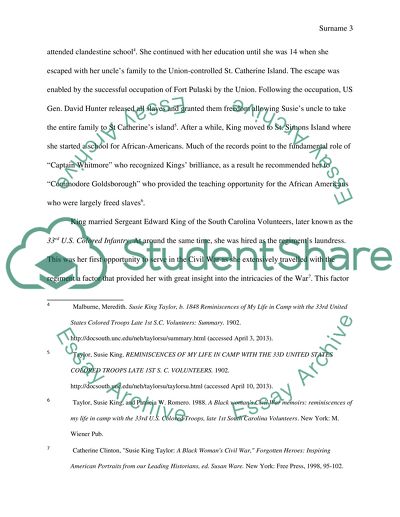Cite this document
(“The Signifance of Susan King Taylor During The Civil War Research Paper”, n.d.)
Retrieved from https://studentshare.org/history/1472479-the-signifance-of-susan-king-taylor-during-the
Retrieved from https://studentshare.org/history/1472479-the-signifance-of-susan-king-taylor-during-the
(The Signifance of Susan King Taylor During The Civil War Research Paper)
https://studentshare.org/history/1472479-the-signifance-of-susan-king-taylor-during-the.
https://studentshare.org/history/1472479-the-signifance-of-susan-king-taylor-during-the.
“The Signifance of Susan King Taylor During The Civil War Research Paper”, n.d. https://studentshare.org/history/1472479-the-signifance-of-susan-king-taylor-during-the.


